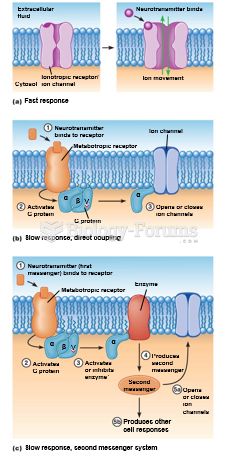|
|
|
There are approximately 3 million unintended pregnancies in the United States each year.
Children with strabismus (crossed eyes) can be treated. They are not able to outgrow this condition on their own, but with help, it can be more easily corrected at a younger age. It is important for infants to have eye examinations as early as possible in their development and then another at age 2 years.
When intravenous medications are involved in adverse drug events, their harmful effects may occur more rapidly, and be more severe than errors with oral medications. This is due to the direct administration into the bloodstream.
Hippocrates noted that blood separates into four differently colored liquids when removed from the body and examined: a pure red liquid mixed with white liquid material with a yellow-colored froth at the top and a black substance that settles underneath; he named these the four humors (for blood, phlegm, yellow bile, and black bile).
If all the neurons in the human body were lined up, they would stretch more than 600 miles.
 Functional MRI Scans These scans of human brains show localized average increases in neural activity
Functional MRI Scans These scans of human brains show localized average increases in neural activity
 Horizontal, sagittal, and coronal functional MRIs show areas of increased activity in the primary ...
Horizontal, sagittal, and coronal functional MRIs show areas of increased activity in the primary ...





